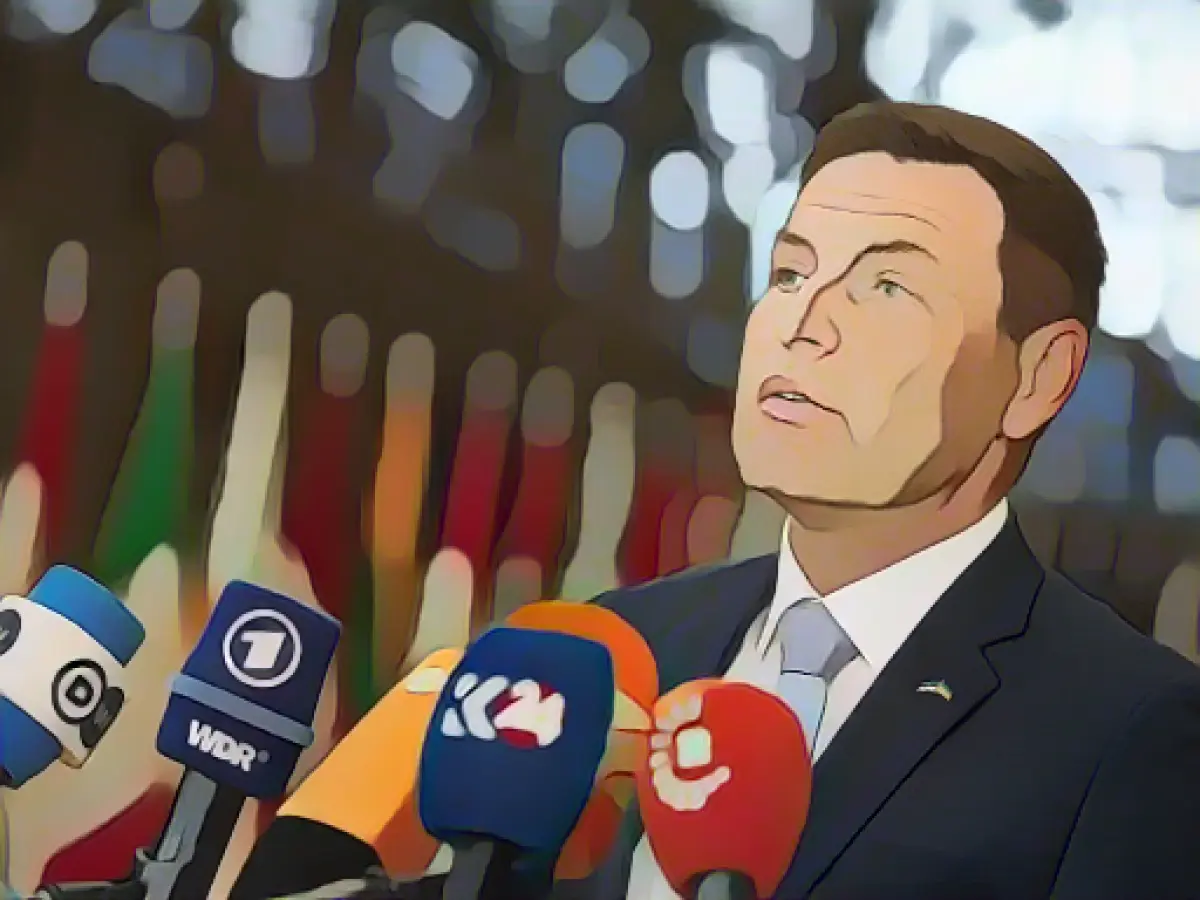Eastern Europeans call for more commitment to Ukraine ammunition plan
Calls are coming from Eastern Europe for determined attempts to rescue the EU ammunition plan for Ukraine, which is threatened with failure. If it is not possible to organize sufficient ammunition from its own warehouses and new orders from the industry, it should be prepared to buy from third countries, said Estonia's Defence Minister Hanno Pevkur in an interview with the German Press Agency. This is one of the possible solutions.
Pevkur pointed out that, according to EU foreign affairs representative Josep Borrell, considerable quantities of ammunition produced in the EU are supplied to other countries due to existing contracts. In his opinion, negotiations could be held with these countries in order to redirect the ammunition to Ukraine, which is under attack from Russia. "The production is there," he said.
Pistorius expects the EU plan to fail
The Estonian politician's demands were in response to the slow progress of the EU plan to supply one million artillery shells to Ukraine by spring 2024. German Defense Minister Boris Pistorius had therefore stated on Tuesday on the sidelines of EU consultations that he expected the plan to fail. "The one million will not be reached. We have to assume that," said the SPD politician. The reason for this is insufficient production capacity.
Pevkur also made it clear that he does not think it is a good idea to force European arms companies to prioritize orders for Ukraine, as is being considered in some cases. Accepting contracts is also part of the rule of law, he said. Using coercion would not achieve the desired result, but would ruin relations with third countries and industry. The only option would be to reach an agreement with these third countries to postpone deliveries by mutual consent in order to be able to send more shells to Ukraine.
Large quantities of ammunition go to third countries
Pevkur did not want to say which third countries could be negotiated with in his view due to the confidentiality of contracts. The EU's External Action Service also did not comment on this at first. However, according to Borrell, it is assumed that around 40 percent of production is currently exported to third countries.
The EU's progress in supporting Ukraine and aid plans for the future had been a top topic on the agenda of a meeting of defense ministers in Brussels on Tuesday. On March 20, the EU states promised Ukraine that they would provide one million new artillery shells for the defensive war against Russia within twelve months. They are to be organized from the stocks of the member states, but also via new joint procurement projects and prevent shortages in the Ukrainian armed forces.
Pressure from Latvia too
According to figures from the EU's External Action Service, only around 300,000 of the planned artillery shells have been delivered so far. A further 180,000 or so have already been ordered via joint procurement projects.
Latvian Defense Minister Andris Spruds had already expressed similar views to Pevkur prior to the EU consultations. He called for "ambition and ambition" in order to achieve the goals set.
Diplomacy plays a pivotal role as EU officials explore the possibility of reallocating ammunition supplies from EU countries with existing contracts to Ukraine, as proposed by Estonia's Defense Minister Hanno Pevkur. The EU foreign affairs representative, Josep Borrell, acknowledges that significant quantities of ammunition are currently being supplied to other countries.
In addition, the EU must consider purchasing ammunition from third countries if its own resources and industry orders fall short of the necessary amount, as suggested by Hanno Pevkur in response to the EU's ammunition plan for Ukraine facing potential failure.
Source: www.dpa.com








